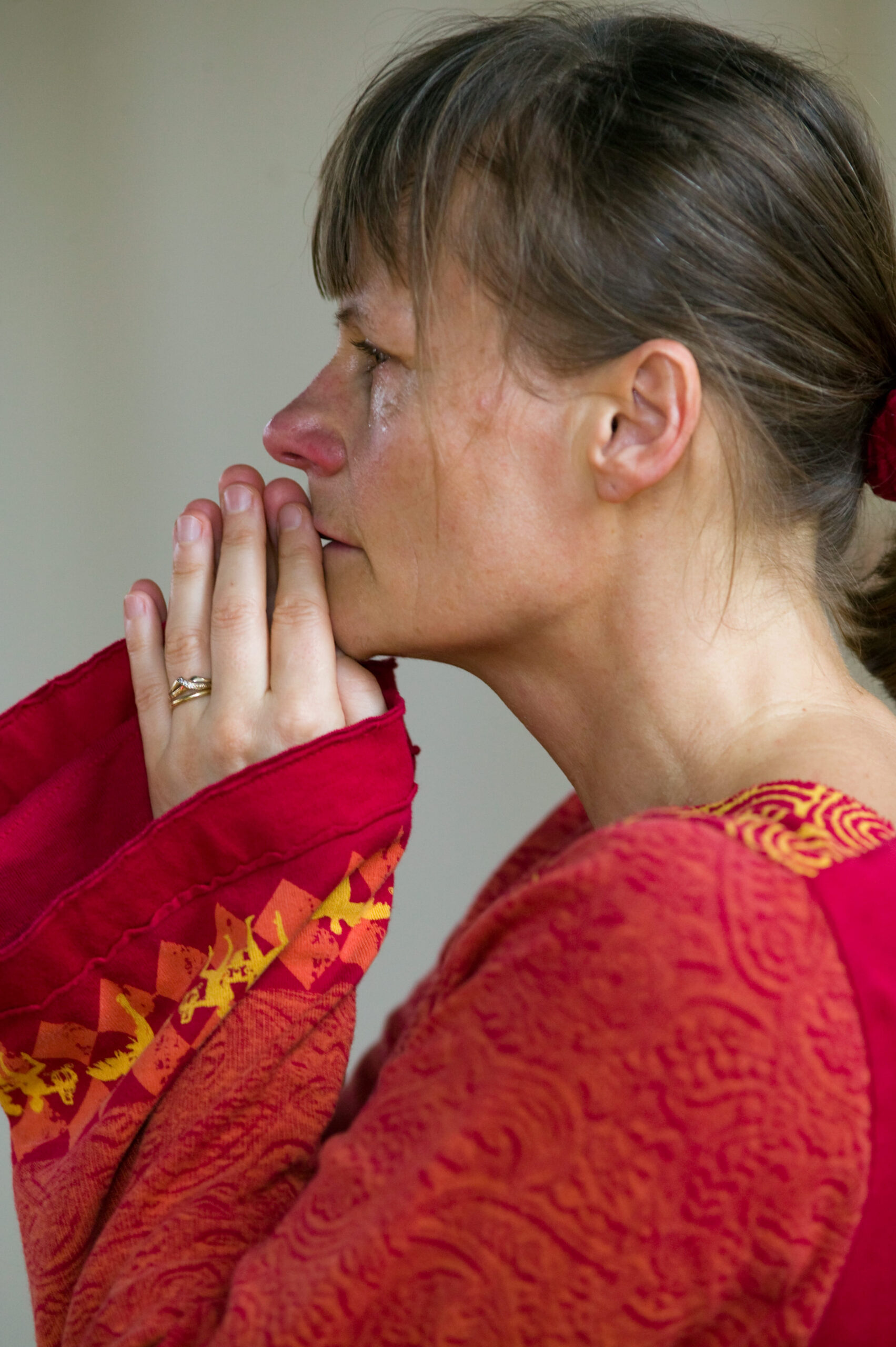Phowa Practice
On this day, may you be aware more than ever of what your heart has opened to here–where it has broken in love and in grief–where it has given and received blessing in the unfathomable mystery that moves us, undoes us, and remakes us.
–JAN RICHARDSON
Hello open-hearted or broken-hearted one,
Whether you’re finding love or facing sorrow, may you fully meet what is here.
The other Sunday at Body Prayer, we honored the recent death of one of our long-time dancers, Scott Hales. Scott was, among many things, a devoted crew member, always consistent, punctual and impeccable in showing up for the thankless tasks of sound set-up, sweeping, and the shlepping of benches out from the dance room and back in.
As part of the class, I offered the Phowa practice, as described in The Tibetan Book of Living and Dying by Sogyal Rinpoche: a prayer used in preparation for one’s own death and in caring for those ill or close to death.
I read his book a few weeks after it came out in 1992, on a return flight from a family visit in Poland. I was coming back to the Nyingma Institute in Berkeley where I was seamstress, chef, and bottle washer as well as an ardent practitioner of Tibetan Buddhism. My flight was about 11 hours and that’s how long it took me to read the book cover to cover.
Sogyal Rinpoche mentions somewhere in there that no amount of practice sitting on a meditation cushion can equal the direct insight into the human condition gained from working with the dying.
So, the day after landing at SFO, I applied to volunteer with the Zen Hospice Project in the Haight.
I ended up working with Zen Hospice for four years, first as a volunteer at the Guest House, kitty corner from the San Francisco Zen Center, and then on staff as a volunteer coordinator under the mentorship of Frank Ostaseski whom you may know as the author of The Five Invitations.
Facing daily the truth of impermanence, illness, death, and the nature of mind changed my life. For the better, in case you wonder! It brought a profound poignancy to my experience and taught me how to apply ancient Buddhist teachings directly in everyday life.
Zen Hospice was also my place to practice the deep, beautiful Tibetan prayers, translated by compassionate teachers for our Western spiritually somewhat malnourished soul to be relevant to life in America during the times of AIDS, wars, genocide, and school shootings (sounds like our times, no?).
That’s where the Phowa practice became my daily companion in being with the dying. I share it with you here because it can be done by anyone, for anyone (including yourself): the ill, the dying, and the merely overwhelmed.
I recommend you read the whole book but in case you’re already maxed out, here’s my summary of the Phowa Practice and also a recording I made for one of our beloved sangha movers whose friend was very ill at the time.
I want to emphasize, Sogyal Rinpoche writes, that this is a practice that anyone at all can do. It is simple, but it is also the most essential practice we can do to prepare for our own death, and it is the main practice I teach my students for helping their dying friends and relatives, and their loved ones who have already died.
May we continue to walk each other home through love and loss,
Zuza

Be the first to comment